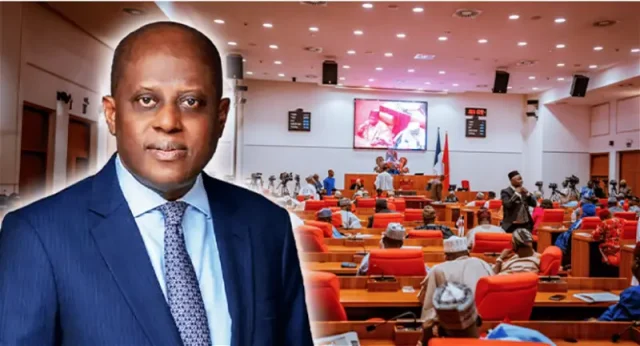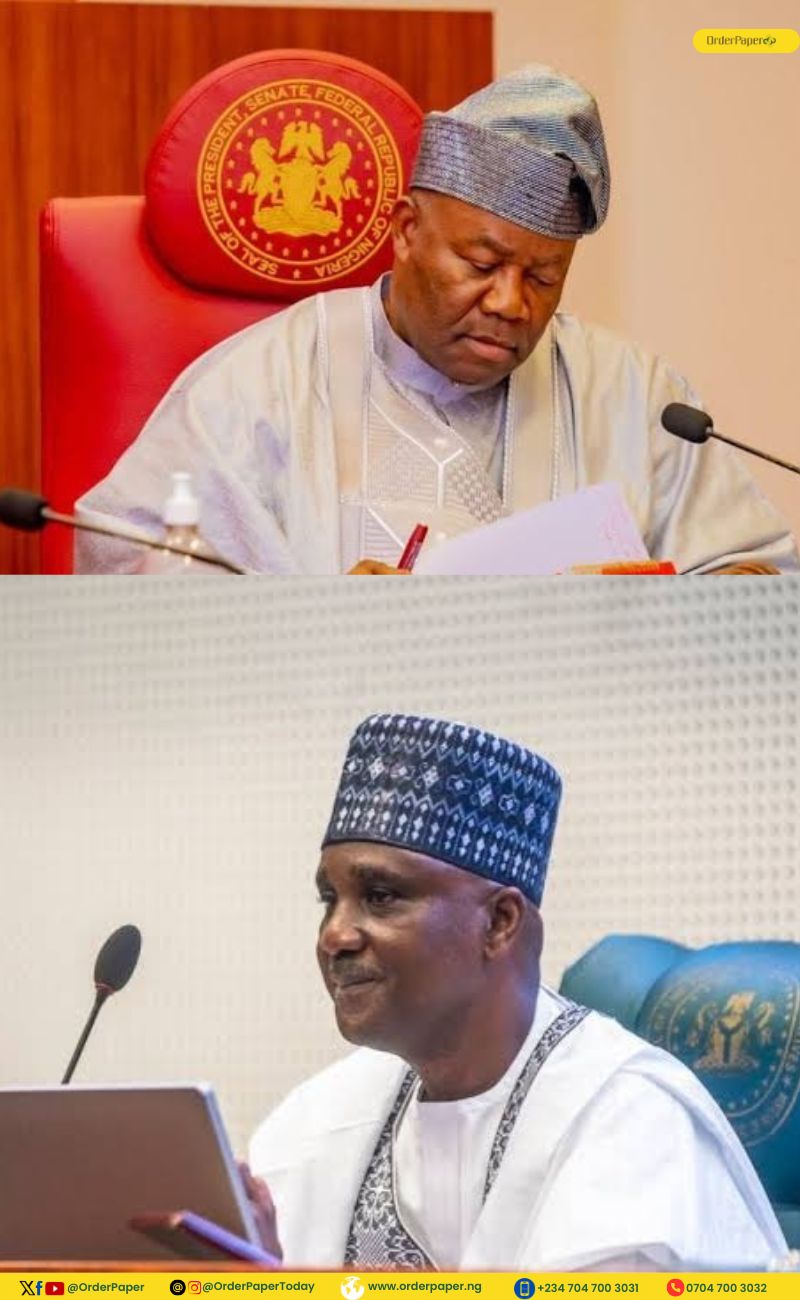The Joint Economic Team of the Senate consisting of the Committees on National Planning and Economic Affairs, Banking Insurance and Other Financial Institutions, Appropriations, and Agriculture had an interactive session with the officials of the Central Bank of Nigeria (CBN) led by Governor Yemi Cardoso.

The Senate has questioned the Central Bank of Nigeria (CBN) concerning the increased economic challenges currently facing the country as they voiced concern about the plan to import food to fill the gap in the food supply, citing fears that it could undermine food security in the nation and deter farmers from increasing their output.
Senators demanded explanations for these issues while at the Joint Economic Team of the Senate which consists of the Committees on National Planning and Economic Affairs, Banking Insurance and Other Financial Institutions, Appropriations, and Agriculture on Friday at the National Assembly.
OrderPaper recalls that the Committee on Banking, Insurance, and Other Financial Institutions in response to the Naira’s collapse to N1,520 to the US dollar summoned the governor of the Central Bank of Nigeria (CBN), Olayemi Cardoso to speak on the status of the economy and the free flow of Naira on the foreign exchange market.
READ ALSO: Senate postpones interactive session with CBN Governor
OrderPaper also recalls that the Committee postponed its interactive session with the Governor of the Central Bank of Nigeria (CBN), Olayemi Cardoso till Friday 9th at 9 am, due to the CBN Governor being held at the House of Representatives in trying to address some economic issues.
The Chairman of the Joint Committees, Senator Yahaya Abdullahi (PDP, Kebbi North) called for the responsible parties present to work together to provide solutions to cushion the economic crises In the country.
He said, “I am 74 years old and I have never seen something like this. We need solutions. We have to sit down and seize all opportunities that we have, we need to not only think out of the box but bring innovative and creative thinking.
“We in the National Assembly are United and we are with the executive arm of government to move this Nation forward. We have to sit down to put on our thinking caps and work together to address these issues that are bede1villing this country.”
on his part, Senator Orji Uzor Kalu (APC, Abia North) called for the ban of dollar use in Nigeria, stressing that the government must go back to abolish the use of dollars in business transactions
“What plans are you putting in place to strengthen the Naira? We must go back to abolish the use of dollars unless to those who are authorised.
“In South Africa, nobody buys anything with dollars. I can see the shops in Abuja putting their goods to be bought in dollars. So what have you done? Where we are now, there is no foreign direct investment that will come to Nigeria, I’m really worried. People are leaving.
“And what else have you made to bring to book those 2.7 billion dollars that you say that they have been in default of the documents? Who are the Nigerians that have defaulted these documents?
“You must bring them the book and you must make it public because people are attacking us. I can’t go to my constituency. If I go to my constituency, people are hungry, people are shouting at us, and people think we the senators are the cause of the economic problem. We are just making laws. It’s left for you people to execute it.
“So for me, what plans are you making right away to reconcile with NLC and TUC? They have given a 14-day ultimatum. What are we doing to stop that movement? Because I don’t want to see people say this is politics, this is not politics. These people are legitimately doing what they are doing,” he added.
Meanwhile, the Chairman, Senate Committee on Banking, Insurance and Other Financial Institutions, Senator Adetokunbo Abiru (APC, Lagos East) underscored the need for a forensic investigation of past transactions and the issue of compliance of the bank.
“We have serious economic challenges, they are largely macroeconomic challenges.
“We have inflation in several countries including developing countries but in Nigeria, we have inflation at almost 20%. What special measures do we have to address this?
“Do we have the place to assist the government to boost food supply in a view to also kind of reduce the weight of food inflation in the consumer price index? That’s my second question.
“How does CBN plan to support the productive sectors of the economy, the agriculture and manufacturing sectors? Because there are the two critical sectors already experiencing heavy growth rates.
“Today the money supply is estimated at close to about 75 trillion and thereabouts. I don’t know what is impeded in that 75 trillion, we have a 30 trillion ways and means that ordinarily should have been impeded, but we have structured this into a 40-year instrument at a subdued interest rate of 9%. These are part of what is creating the distortions in the economy.”


